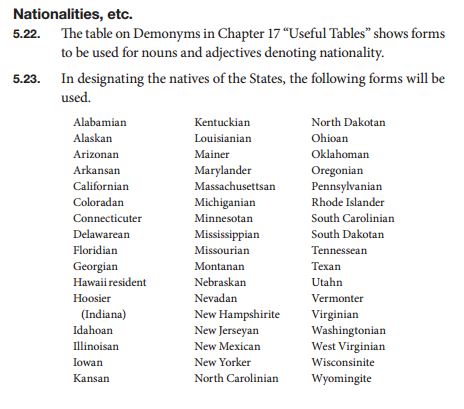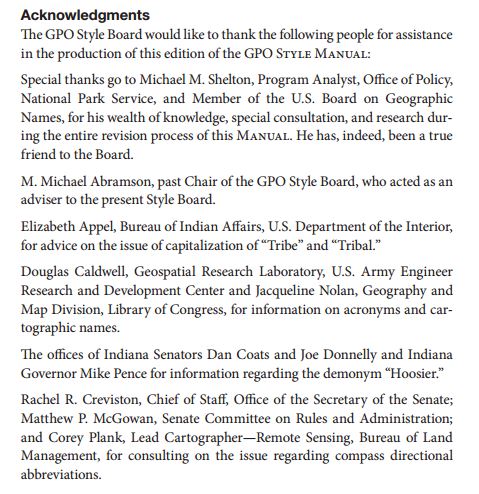In this state we take our names seriously! We are Hoosiers; not Indianians; not even Indianans. We are Hoosiers and, finally, the Government Publishing Office (GPO) agrees with us! The newest edition of the GPO Style Manual will no longer refer to citizens of Indiana by the name Indianians, but now as Hoosiers. The Style Manual (similar to style manuals you find in English class for help with citations) is a standardization template designed to create uniformity of a word or phrase. One such example is the designation of native residents of states. GPO, by act of Congress, has published a style manual since 1894, and states that its rules are based on principles of good usage and custom in the printing trade.

They explain,”Writing is hard enough without having to make gut-wrenching decisions about punctuation and spelling every few seconds and the Style Manual is designed to make all government writing consistent. The manual is the authority on questions of language and spelling that are not black and white, but grey. Unfortunately, GPO long ago decided in designating the names of a Hoosier that they should be referred to as an Indianian.”
To the rescue
Senator Joe Donnelly and former Senator Dan Coats entreated GPO to make the change. They argued Indiana residents have proudly called themselves Hoosiers for more than 180 years and writing in a letter last year stated, “we find it a little jarring to be referred to (Indianian) in this way.”
Their timing was perfect, as GPO was working on the 31st edition of the Style Manual. The federal government relented and on page 95 of the updated U.S. Government Publishing Office’s Style Manual we Hoosiers are finally, officially Hoosiers.
This blog post is by Reference and Government Services Division. For more information, contact us at (317) 232-3678 or send us a question through Ask-a-Librarian.




